The period of 1999 to 2007 was one of exciting innovation for McGill’s Faculty of Law. Most notably, the transsystemic program was launched, replacing the National Programme. Henceforth, all McGill law students would graduate with degrees in both the civil and the common law, having been selected for admission to the Faculty from a single admissions pool. The transsystemic program was unique in that it integrated the study of different legal traditions within blended courses, as opposed to the National Programme, which had offered McGill students the ability to study different legal traditions sequentially. This provided an altogether new way of teaching and thinking about the law. Many McGill alumni also worked to shape the future of Canadian law during this time: Marie Deschamps and Morris Fish were appointed to the Supreme Court of Canada, and Irwin Cotler was appointed as Minister of Justice and Attorney General of Canada. At the same time, the Faculty was involved in a surge of innovation with the creation of two legal centres: The Centre for Human Rights and Legal Pluralism (CHRLP) and the Centre for Intellectual Property Policy (CIPP). Additionally, the Faculty hired Adelle Blackett as its first Black law professor during this period, who is responsible for instilling an increasingly diverse group of perspectives at the Faculty of Law.
In this period:
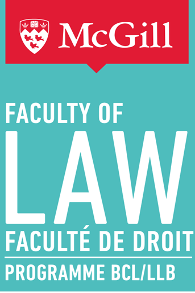
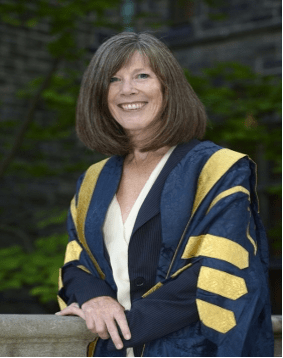
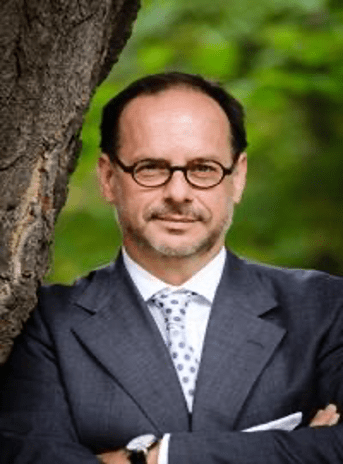

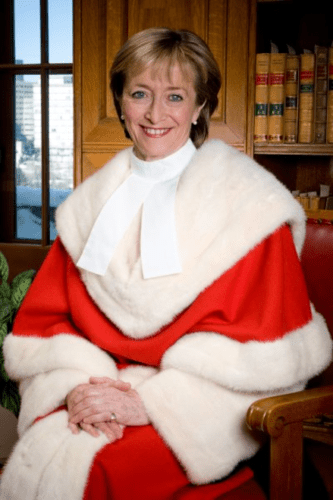

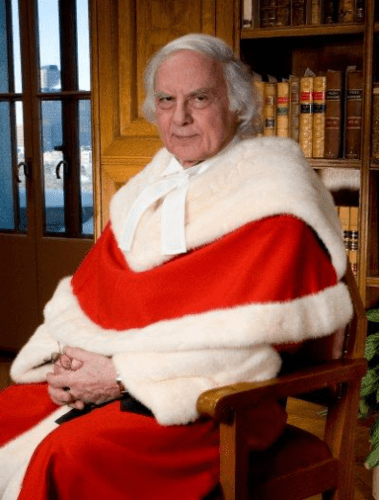
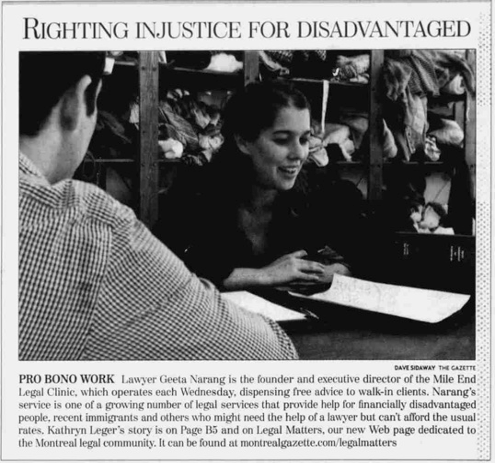


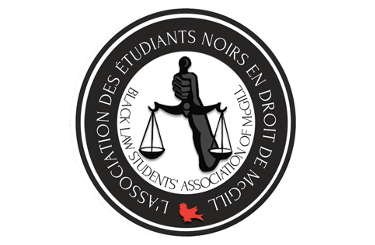
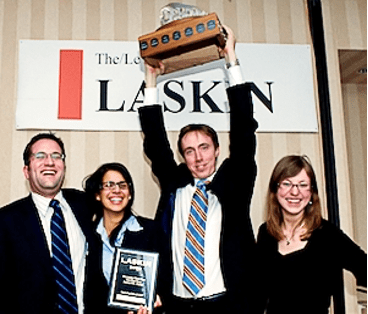
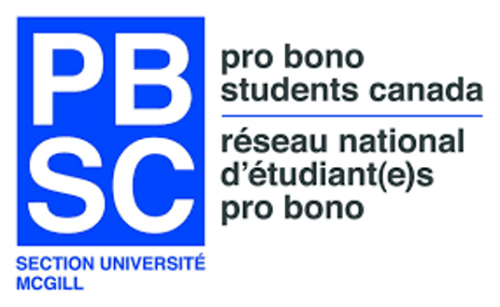
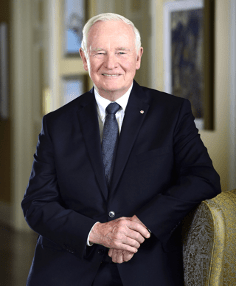
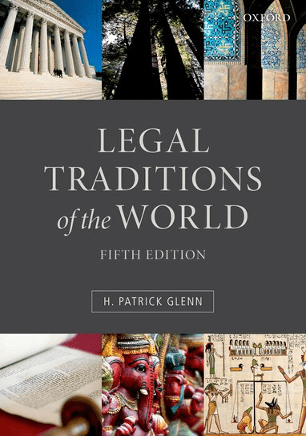
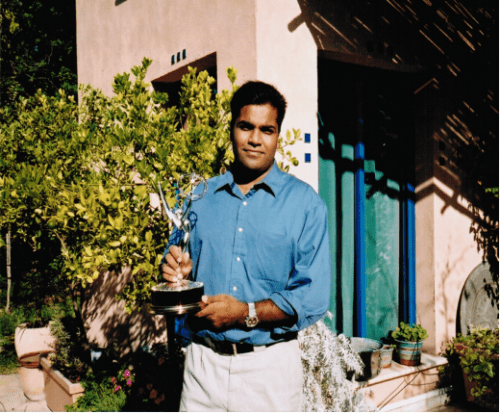
Introducing: The Transsystemic Program

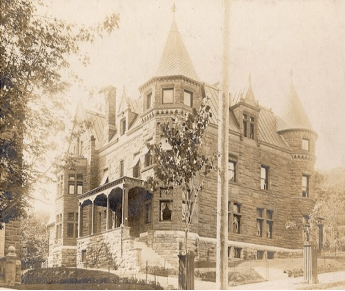
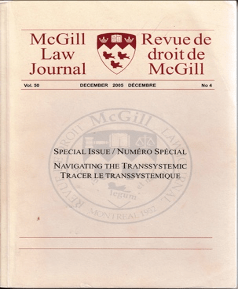
After three decades of offering the National Programme, McGill embarked on another pedagogical overhaul: a transsystemic legal education. Students would still graduate with both BCL and LLB degrees, but would now learn about both traditions in an integrated fashion. Teaching both traditions at once ensured that students would not be biased in favour of the first tradition to which they were exposed. McGill Law was the perfect site to embark on an experiment in transysstemic legal education. The faculty is situated in Montreal, which is home to a largely bilingual population in a province where there is a “métissage” of legal traditions due to its colonial history. When the transsystemic program was introduced, McGill Law truly began offering a bilingual and bijural legal education to all of its students.
In 2005, the McGill Law Journal published a special edition to commemorate its 50th volume. The special edition focused on transsystemic legal thinking in order to “echo the aspirations” of the Faculty of Law and to allow “readers to reflect on and critically assess these aspirations.” Many McGill Law faculty members contributed to this edition, including Professors Shauna Van Praagh, Rosalie Jukier, Richard Janda, and H. Patrick Glenn.
Pioneering Women: McGill Alumnae Head Law Faculties

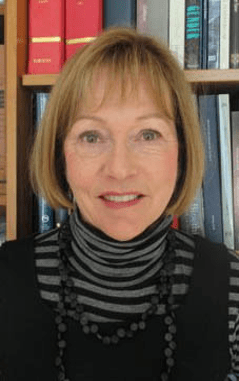
Mayo Moran (left), LLB’90, is the first woman to be the dean of the University of Toronto Faculty of Law, holding the position between from 2006 to 2014. She then became Provost of Trinity College at the University of Toronto. She has published and taught on a number of topics, including feminist legal theory, international law, legal history, private law, and ethics. Described as “the kind of person who brings honour and nobility to the profession”, Moran has certainly made McGill Law proud of her contributions in breaking glass ceilings in the legal profession.
Alison Harvison Young, BCL’83, LLB’83, is another McGill Law graduate who broke glass ceilings in her career. Harvison Young was a professor at McGill Law from 1988 to 1998, specializing in family law and administrative law. She was beloved by her students, and was awarded the John W. Durnford Teaching Excellence Award during her time at McGill. Harvison Young was then appointed Dean of Queen’s Law from 1998 to 2004. This was the first time that a dean at Queen’s Law was appointed from outside of the faculty. Under her deanship, Queen’s Law underwent major infrastructure improvements and recruited a number of new professors, which led to a period of renewal at the faculty. She went on to become a judge on the Ontario Superior Court in 2004, and was appointed to the Ontario Court of Appeal in 2018.
McGill Law at the SCC: Daniel Jutras Serves as Executive Legal Officer

As a scholar, former professor and former dean of McGill Law, Daniel Jutras contributed widely to legal scholarship, the advancement of transsystemic thinking at the faculty, and to revamping the curriculum. Outside of academia, he has been influential on the national stage through his work at the Supreme Court of Canada as a clerk to Antonio Lamer, Executive Legal Officer for Chief Justice Beverley McLachlin, and as amicus curiae (the latin term for “friend of the court”, or someone who assists by providing insight and expertise to cases).
Jutras is an expert in private and comparative law and became the holder of the Wainwright Chair in Civil Law at McGill in 2011. He has been recognized for his contributions through awards such as the Mérite award in 2006, the distinction of Advocatus Emeritus from the Barreau du Québec, and the Médaille du Jubilée de la Reine Elizabeth in 2013. Jutras was the dean of McGill’s Faculty of Law between 2010 and 2016. During his deanship, Jutras led the way to a massive curricular reform, including the establishment of integration workshops, teaching of Criminal Justice in first year, and learning Property Law transsystemically. In 2020, he was appointed an officer of the Order of Canada, and was appointed Rector of Université de Montréal.
Creation of Cutting-Edge Legal Centres


On September 15, 2005, McGill’s Senate approved the creation of the Centre for Human Rights and Legal Pluralism (CHRLP). The Centre, founded to build on the already-established interest and passion for social justice at McGill’s Faculty of Law, has cemented the Faculty’s place as a leader in human rights law. The Centre hosts lectures and conferences, runs an internship program for students, and hosts a variety of human rights professionals through fellowship programs. In 2010, the Centre began a new initiative in response to the Truth and Reconciliation report, entitled Responsibility to Connect: Legacies of Human Rights Abuses in Indian Residential Schools in Canada, in order to encourage research and events that specifically focused on aboriginal human rights.
Founded in April 2003, the Centre for Intellectual Property Policy (CIPP) at the Faculty of Law promotes and conducts research on intellectual property. CIPP also holds regular events and releases a number of significant publications, including a newsletter that has over two thousand subscribers worldwide. With Montreal becoming a hub for the tech industry, founders Professors Richard Gold and David Lametti saw an opportunity for McGill to be one of the world’s foremost authorities on intellectual property. Researchers with CIPP come from a variety of disciplines, such as philosophy, management, economics, and science, and are located around the world. Students have the opportunity to write papers under the supervision of CIPP professors and to help with research and conferences. Note that prior to the founding of the CHRLP and CIPP, the Paul-André Crépeau Centre for Private and Comparative Law was already in existence.
McGill Law at the SCC: Marie Deschamps
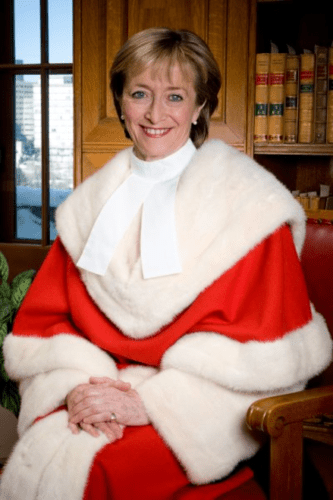
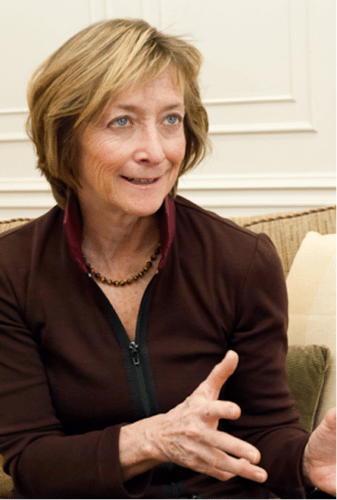
Marie Deschamps, LLM’83, was named to the Supreme Court of Canada in 2002. Prior to her appointment, she had served as a judge at the Quebec Court of Appeal for ten years. While on the Supreme Court, Deschamps earned a reputation for writing excellent judgments and for dissenting often. She presided over a number of important constitutional law cases such as Canadian Foundation for Children, Youth and the Law v. Canada and Canada (Prime Minister) v. Khadr.
Deschamps retired early from the Supreme Court at the age of 59 rather than at the obligatory retirement age of 75. She cited that after “10 intense years” at the SCC, and 22 years total as a judge, she was ready for something new. Deschamps would go on to become more involved in universities as an adjunct professor at McGill and Université de Sherbrooke. She is also the chair and trustee of Pro Bono Canada. In recent years, Deschamps has tackled the issue of sexual assault in Canada and abroad. In 2015, after being asked to conduct an external review of the Canadian military, she released a report exposing the rampant sexual assault and harassment in the military, along with several recommendations for improvement. She was then appointed head of an investigation into the UN’s failure to protect victims of alleged sexual abuse and exploitation by peacekeepers.
Creation of New Law Journals

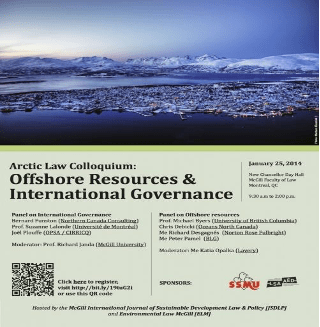
The new millennium brought with it the founding of two new peer-reviewed law journals to which McGill Law students would be able to contribute for class credit. The McGill Journal of Law and Health (MJLH) released its first issue in 2007. Despite its relatively new status, it has already been cited several times by the Supreme Court of Canada. The MJLH focuses on issues related to health and the law, as well as health policy. Following in the footsteps of the Faculty in which it is situated, the MJLH is bilingual.
In 2004, McGill Law students founded the McGill Journal of Sustainable Development Law (MJSDL) as a response to a dire need within the legal community for an outlet to air innovation and ideas concerning sustainability. Along with their bi-annual journal publications, the MJSDL also publishes blogs posts on their website and holds events at the Faculty such as their Arctic Law Colloquium (see above), held in 2014.
McGill Law at the SCC: Morris Fish

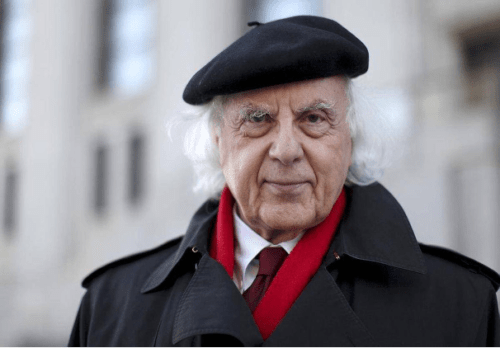
Justice Morris Fish, BCL’62, LLD’01, has distinguished himself in various roles within the legal profession. He practiced criminal law for 25 years, and was an adjunct professor at three faculties of law, including at McGill. He was appointed to the Quebec Court of Appeal in 1989, and the Supreme Court of Canada in 2003. Justice Fish is a member of the Queen’s Counsel and a Companion of the Order of Canada, and is still involved at McGill as a member of the Principal’s International Advisory Board. He has long had a reputation as an excellent writer and an unwavering defender of civil liberties. Fish has noted that “no profession could have given me a greater sense of satisfaction or fulfilment than the legal profession.”
Justice Fish completed both his undergraduate and law degree at McGill. As a law student, he worked under Professor F.R. Scott, doing research for the famous Lady Chatterley’s Lover case on obscenity. Fish was an excellent student and graduated with First Class Honours and numerous academic prizes. He impressed Joseph Cohen, the practitioner who taught his criminal law classes, and was recruited to his firm. Fish noted, “I’m full of fond memories at McGill, that’s the short of it. I’m grateful for the opportunities.” Justice Fish was awarded the 125th Anniversary of the Confederation of Canada Medal and the Queen Elizabeth II Diamond Jubilee Medal. He received an honorary degree from McGill in 2001.
McGill Law Grads Establish Legal Clinics

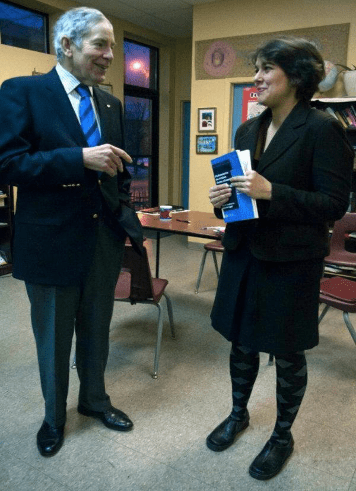
Legal clinics are a vital part of ensuring access to justice and provide essential legal services to people in the community. The Mile End Legal Clinic was established in 2002 when Geeta Narang, BCL’00, partnered with the Mile End Community Mission to offer free consultations in an effort to increase access to justice. The clinic now has additional service points at the Park Extension Legal Clinic and the Tyndale St-Georges Legal Clinic. Because of her important work in the community, Narang has received the Young Bar Association’s “Pro Bono Lawyer of the Year” Award, the Médaille Saint-Yves, and the Queen’s Diamond Jubilee Medal. Narang is a sessional lecturer at McGill Law, where she teaches Judicial Institutions and Civil Procedure and Poverty and the Law. She was appointed to the Superior Court of Quebec in 2020.
Colin Irving, BCL’58, volunteered at the Mile End Legal Clinic for three years before founding the Tyndale St. Georges Legal Clinic. He was known for doing pro bono work throughout his long career, and received the Médaille St-Yves for his contributions. His work had a profound effect on the clinics, as noted by Geeta Narang: “He gave this small project his time and love and his resources so that we could become as big and as great as he was.”
Pioneering Diversity at the Faculty

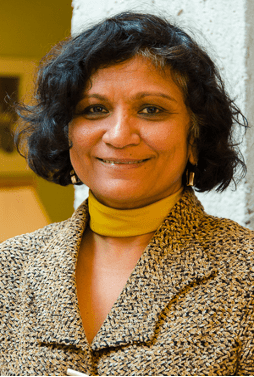
In 2000, when Professor Adelle Blackett, FRSC, Ad E, BCL’94, LLB’94, was hired, she was not only the first Black professor to be hired by the Faculty of Law, but was also the University’s first Canadian-born Black professor to be hired since the 1850s. One of Professor Blackett’s earliest impacts on the Faculty came when she introduced a module on Critical Race Theory to the Foundations of Canadian Law course, an addition that remains to this day. As one of the foremost researchers and experts on labour law, transnational labour law and regulation of domestic work, Professor Blackett has held a number of prominent positions in these fields, including working at the International Labour Office in Geneva. In addition to her work as a professor and researcher, Blackett also served as a commissioner on Quebec’s Human Rights and Youth Rights Commission for seven years. In 2014, she received the Barreau du Québec’s Advocatus Emeritus (Ad E) designation. In 2015 – the same year she was made a Full Professor at the faculty – the Canadian Association of Black Lawyers awarded Professor Blackett its Pathfinder Award for her significant contributions to the legal community and the community at large. She was recognized with the Principal’s Prize for Excellence in Teaching in 2020.
Prior to joining McGill’s Faculty of Law in 2006, Professor Nandini Ramanujam worked extensively in systemic reform of higher education in the former communist countries of Eastern Europe and the Soviet Union, including Aga Khan’s Central Asian University and Smolny College in St. Petersburg. Flourishing at the Faculty, Professor Ramanujam has maintined her devotion to human rights issues as the Executive Director and Director of Programs of the Centre for Human Rights and Legal Pluralism (CHRLP) and as the Director of the International Human Rights Internship Program. Both Professor Ramanujam and Professor Blacket have paved the way for people of colour to hold positions of power within legal academia.
Irwin Cotler Named Minister of Justice
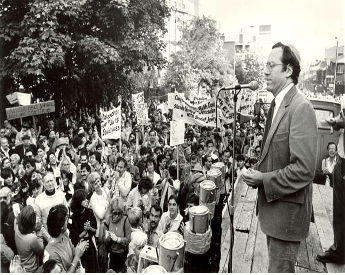
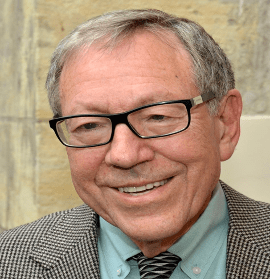

Irwin Cotler, BCL’64, LLD’19, is most known for his remarkable contributions to the field of human rights as a scholar and a lawyer, as well his role as Minister of Justice and Attorney General for Canada from 2003 to 2006. Cotler was a Member of Parliament from 1999 to 2015, representing the Mount Royal riding in Montreal. Cotler was also a professor at the McGill Faculty of Law from 1973 until 1999. He is a longstanding member of McGill Law’s Centre for Human Rights and Legal Pluralism. Cotler is the current Chair of the Raoul Wallenberg Centre for Human Rights as well as the Centre’s Founding Director. Throughout his career, Irwin Cotler served as counsel to many notable people whose rights had been infringed upon, including Nelson Mandela, Jacobo Timerman, Andrei Sakharov, Saad Eddin Ibrahim, and Natan Sharansky. In 1986, a Maclean’s article wrote a feature on Cotler, referring to him as “Counsel to the oppressed”.
Irwin Cotler was, and remains, an outspoken defender of civil liberties and human rights. Cotler was famously expelled in 1979 from the Soviet Union for defending Natan Sharansky, who was a political prisoner at the time. This was likely the reason why Cotler was one of the 13 Canadians banned from Russia in 2014. When asked about the 2014 blacklist on his name, Cotler remarked on his Twitter account “I see my travel ban from Russia as a badge of honour, not a mark of exclusion.” Cotler is pictured above speaking at a protest of Jewish Soviets in 1985. As Minister of Justice and Attorney General, Cotler introduced many major reforms and legislation, including the first-ever law on human trafficking, the legalization of same-sex marriage, and the quashing of more wrongful convictions in a single year than any prior Minister. He also instituted major reforms to the appointment process for the Supreme Court of Canada and increased diversity on the bench across the country. In 2019, the McGill Faculty of Law awarded Irwin Cotler with a Doctorate of Law, honoris causa. He is an Officer of the Order of Canada and of the Ordre National du Québec.
Founding of the Black Law Students’ Association of McGill

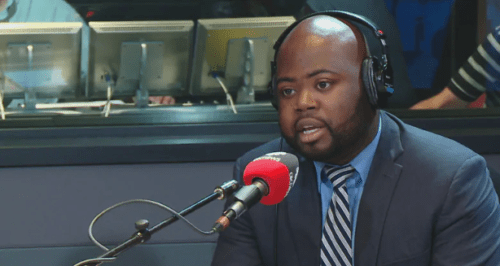
Founded in 2006, the Black Law Students’ Association of McGill (BLSAM) is the oldest Quebec chapter of the Black Law Students’ Association of Canada. BLSAM’s mission is to “to promote the needs and concerns of Black law students to the general public and legal community,” as well as to “build a dialogue with the community and increase access to legal education for persons who identify as African Canadian/Black.” One of BLSAM’s biggest community outreach initiatives is their “See Yourself Here” event, in which they review the applications of racialized people applying to McGill’s Faculty of Law.
Anthony Morgan, BCL/LLB’12 (above) is a human rights and civil liberties lawyer at Falconers LLP, where he focuses on intersectional, anti-racist human rights litigation and advocacy that addresses anti-Black racism in policing and the broader criminal justice system. In 2011, Morgan made headlines when he filed a complaint with the Quebec Human Rights Commission after filming white business students from Université de Montreal’s Hautes Études Commerciales (HEC) in blackface during frosh week chanting in mock Jamaican accents. Morgan has advocated on these issues at both the Supreme Court of Canada and before two United Nations human rights committees.
McGill Law Students Excel at Mooting Competitions

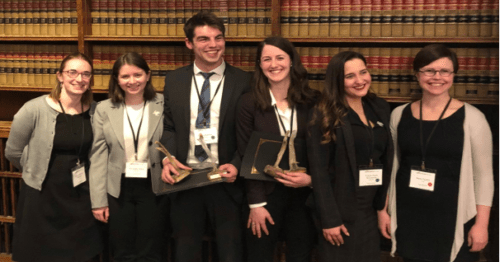
When it comes to competitive mooting, McGill Law’s record speaks for itself: McGill breeds winners. In 1999, the Faculty had a historic year, winning the first prize in every national mooting competition they entered. Commenting on this feat, then-dean Stephen Toope remarked, “I don’t think this has happened to any Canadian law faculty before… It’s a spectacular performance.” That year, the McGill Law placed first at the Gale Cup, the Wilson Moot, the Laskin Moot Competition, the Rousseau Moot, tied for first place with the Université de Montréal at the Mignault Competition, and won second place at the Jessup International Law Moot. Three years earlier, McGill Law students demonstrated their skills on the international stage, winning the Concours Rousseau Moot Competition in Brussels as well as a “Super Final” at the International Court of Justice at The Hague.
Today, McGill Law’s mooting teams are still a force to be reckoned with. Students have the opportunity to participate in at least 15 competitive mooting competitions both nationally and internationally. Students also have the chance to participate in a non-competitive moot in the classroom, such as in the Talmudic Law course, the Trial Advocacy course, and the Shakespeare Moot.
McGill Law Students Volunteer in the Community


The 2000s saw an explosion of new clubs at McGill Law, which now total over forty. McGill Law students demonstrated their eagerness not only to collaborate with each other and gain practical experience, but to make a real difference in their communities as well. The McGill Chapter of Pro Bono Students Canada (PBSC) was founded in 2000. Working with over 30 community organizations in Montreal, McGill Pro Bono is a student-run organization that partners McGill Law students with organizations that need volunteers. Close to 100 students volunteer their time every year, working with marginalized communities such as immigrants, refugees, and low-income families.
Innocence McGill was founded in 2005 as one of the many Canadian chapters of the Innocence Project which aims to exonerate persons who were wrongfully convicted. In addition to reviewing dozens of cases a year, the chapter also hosts annual conferences. In 2019, Innocence McGill hosted a conference about the additional barriers incarcerated Indigenous people face when looking to be exonerated.
In 2006, L.E.X. (Law-Éducation-Connexion) was founded at McGill. The program sends McGill law student volunteers to some of the communities where dropout rates are particularly high, and seeks to pique an interest in law in the high school students they visit. The L.E.X. volunteers give presentations about legal issues and chat with students about their experiences, encouraging them to consider law as a potential career path. Furthermore, the faculty hosts “Welcome Days” where high-school students are able to come to the university and experience life at the faculty firsthand. They participate in workshops and a mock trial.
David Johnston: From Governing McGill to Governing Canada

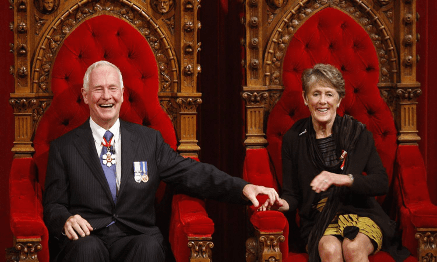
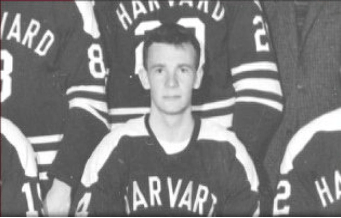
On October 21, 2010, the Right Honorable David Johnston became Canada’s 28th Governor General. Characterizing his seven-year term, Johnston’s motto, Contemplare Meliora (to envisage a better world), referred to his belief in the ability of all Canadians to imagine and create a smarter, more caring nation and contribute to a fairer, more just world. To help further his vision, Johnston created the Rideau Hall Foundation, a charity that works with the Governor General to foster leadership, education, philanthropy, and innovation. Prior to becoming the Governor General, Johnston, having served as the Principal and Vice-Chancellor of McGill University from 1979 to 1994, taught at the Faculty of Law from 1994 to 1999.
Johnston has been an inspiring figure since his youth. He served as the inspiration for a character in the 1970 best-selling book Love Story, by Erich Segal. The character based on Johnston was Davey, the captain of the hockey team. While earning his Bachelor of Arts degree at Harvard, Johnston captained the varsity ice hockey team where he became friends with Segal. Interestingly, Johnston had originally intended to pursue a career playing hockey in the NHL but turned down an opportunity to try out for the Boston Bruins, instead pursuing a Bachelor of Laws with honors at Trinity Hall, Cambridge.
Patrick Glenn publishes Legal Traditions of the World
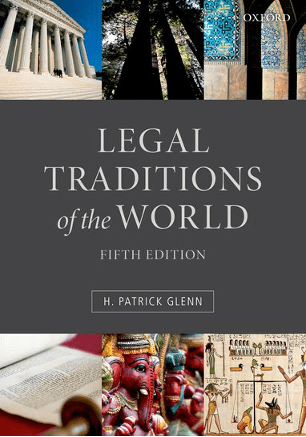
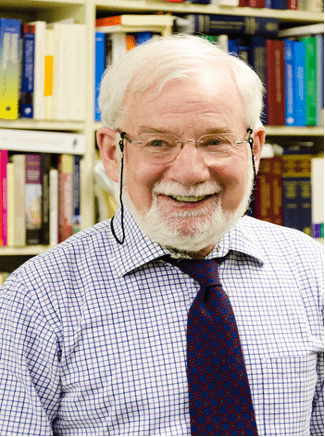
After spending decades at the top of his field in comparative law, Professor Patrick Glenn published his seminal work on comparative law, Legal Traditions of the World, in 2000. Glenn provides an in-depth examination of seven different legal traditions. In his review of Legal Traditions of the World, Professor Thomas Carbonneau of Penn State remarked, “its impact upon the teaching of the subject and the practice of the comparative law methodology should be considerable, perhaps even profound. It is the book that needed to be written to help contemporary and emerging comparatists break free of the dry taxonomy used in some traditionalist approaches to comparative legal analysis and discussion.” The manuscript for Legal Traditions of the World was awarded the International Academy of Comparative Law’s Canada Prize in 1998. The Canada Prize recognizes “an original legal work, written in English or French, in which the common law and the civil law systems are the subject of a critical comparative study in the field of private or public law.” The book’s fifth edition was published in August 2014.
With over a dozen books and 200 articles, no one can deny Professor Glenn’s impact on the field of comparative law. In 2010, Professor Glenn was a visiting Fellow at All Souls College, Oxford, and held the Henry G. Schermers Fellowship at the Hague Institute for Internationalization of Law and Netherlands Institute of Advanced Studies. In 2012, he became the President of the American Society of Comparative Law, making him the first non-American to hold this position. After his death in 2014, the Québec Division of the Canadian Bar Association posthumously awarded him the Paul-André Crépeau Medal.
McGill Law Grad Hanson Hosein Wins an Emmy for Journalism
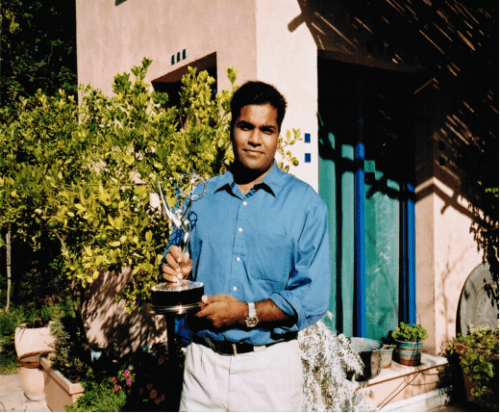

In 1999, Hanson Hosein, LLB’92, BCL’93, won both an Emmy and an Overseas Press Club award for one of his segments as a war correspondent titled “The Fall of Kosovo.” Hosein is a film director, author, and the founder and president of HRH Media Inc., a film production company that has worked with several Fortune 500 corporations. Hosein also works at the University of Washington as Director of the Communication Leadership master’s program. An old classmate recalled how “Hanson made it very clear that he would never practice law.” He has certainly demonstrated how McGill Law can propel students into all sorts of unconventional paths.
Above (right) shows Hanson Hosein near Jerusalem in 2001 during his time as a war correspondent. Hosein spent four years working for NBC as the Middle East Producer and MSNBC.com correspondent.
